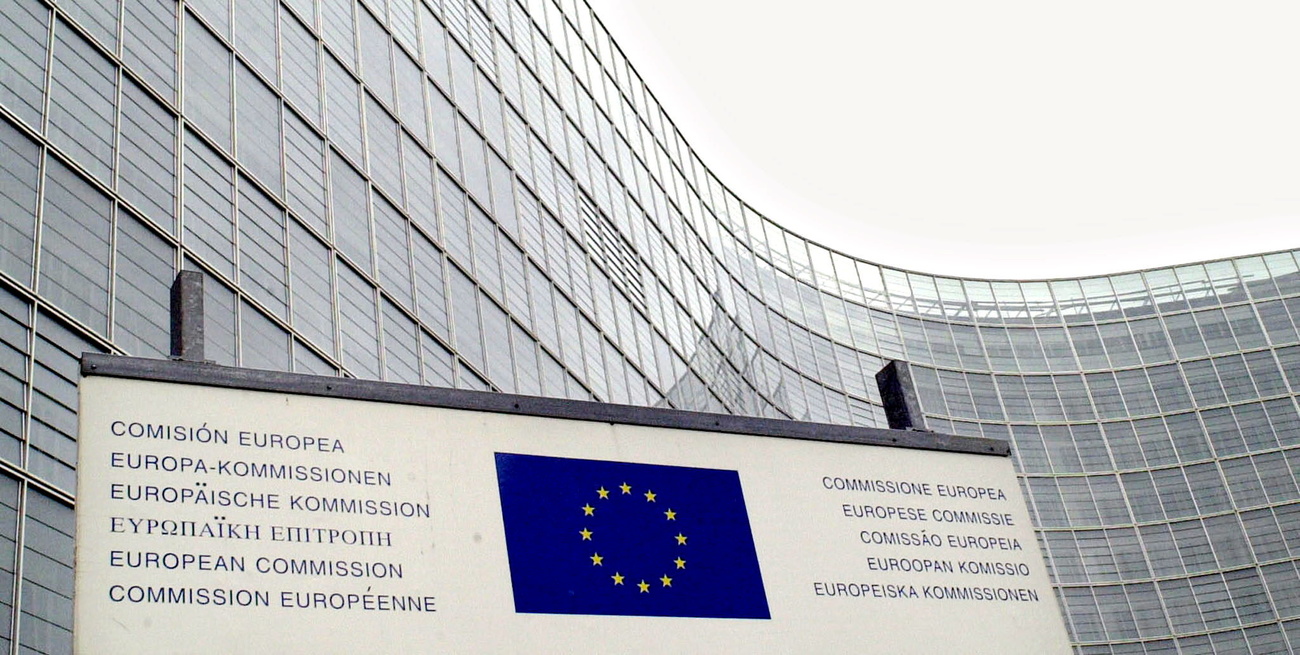
Switzerland-EU: draft negotiating mandate approved by second committee

After the House of Representatives, the Foreign Policy Committee of the Senate has approved the general thrust of the draft negotiating mandate with the EU presented by the government in December.
It welcomes the overall approach based on a package of agreements but makes additional demands.
The committee was particularly critical of Switzerland’s closer institutional ties with the EU, the planned dispute settlement mechanism, the draft agreement on electricity and the adoption of the directive on European citizenship. However, after weighing up all the interests, the committee approved the draft by nine votes to three, with one abstention, parliament’s services reported on Tuesday.
The result of the exploratory talks constitutes “a good basis for conducting negotiations and reaching a satisfactory outcome that not only takes Swiss interests into account, but also contributes to long-term legal certainty”, according to the committee.
In addition to the global approach based on a package of agreements, it welcomes the inclusion of institutional rules in the market access agreements and the abandonment of the “guillotine clause” in future agreements. It considers it important that the rules negotiated on state aid should only apply sectorally in the area or agreement concerned, and should not have a horizontal effect.
+ Swiss-EU relations: Bern prepares for a vacuum
New agreements
The committee also approved the negotiation of new agreements in the electricity, health and food safety sectors, giving Switzerland additional room for manoeuvre.
In the electricity sector, the focus should be on cooperation in the areas of grid stability, electricity trade and security of supply. In addition, households and small and medium-sized businesses (SMEs) must be able to remain within the protected basic supply. With regard to the land transport agreement, its revision must not be detrimental to national traffic.
Should it become apparent that Switzerland’s interests in one of these areas are at risk of being insufficiently protected, or that an agreement remains unsatisfactory, it should be possible to abandon the conclusion of the agreement, without the other areas being affected, notes the committee.
Additional requirements
It also makes additional demands. It wants any compensation measures to come into force only after the arbitral tribunal has ruled on the question of their proportionality. It is also calling for a contractual guarantee of current production forms and capacities in the electricity sector.
The commission is also calling for a number of “clear guarantees against undesirable and possibly unforeseeable developments”. It would like to see a clear procedure governing Switzerland’s participation in European legislation that involves the Federal Assembly.
+ More on the current state of Swiss-EU talks
It is also calling for a clear limitation on the jurisdiction of the EU Court of Justice, so that the latter only intervenes indirectly if necessary and at the request of the arbitral tribunal to interpret concepts of EU law. It also insists that the directive on European citizenship be strictly limited to the labour market and that more precise guarantees be provided to prevent the illicit or undesirable obtaining of social benefits.
With regard to the free movement of people, the committee calls for clearly defined exceptions for the posting of workers to Switzerland in accordance with the principle of “equal pay for equal work in the same place”. As for European programmes, Switzerland must be fully, rapidly and sustainably involved in Horizon Europe, with transitional and binding arrangements for the remainder of the current period. It must also be involved in Erasmus+.
The government must also explain how the agreements will be implemented in terms of domestic policy, for example by involving parliament and by defining the composition of the supervisory authorities. And parliamentary cooperation between the Federal Assembly and the European Parliament must be regulated in the form of an institutionalised exchange. On the question of a referendum, the committee will make its views known once the negotiations have been completed.
Translated from German by DeepL/ts
This news story has been written and carefully fact-checked by an external editorial team. At SWI swissinfo.ch we select the most relevant news for an international audience and use automatic translation tools such as DeepL to translate it into English. Providing you with automatically translated news gives us the time to write more in-depth articles.
If you want to know more about how we work, have a look here, and if you have feedback on this news story please write to english@swissinfo.ch.

In compliance with the JTI standards
More: SWI swissinfo.ch certified by the Journalism Trust Initiative

























You can find an overview of ongoing debates with our journalists here . Please join us!
If you want to start a conversation about a topic raised in this article or want to report factual errors, email us at english@swissinfo.ch.